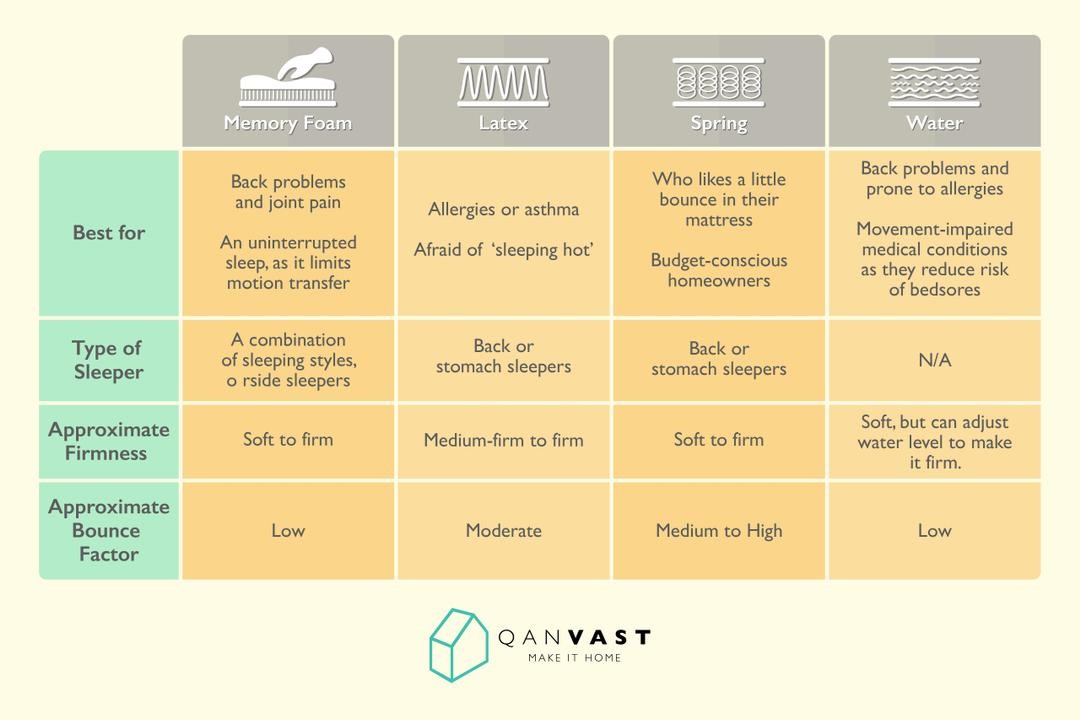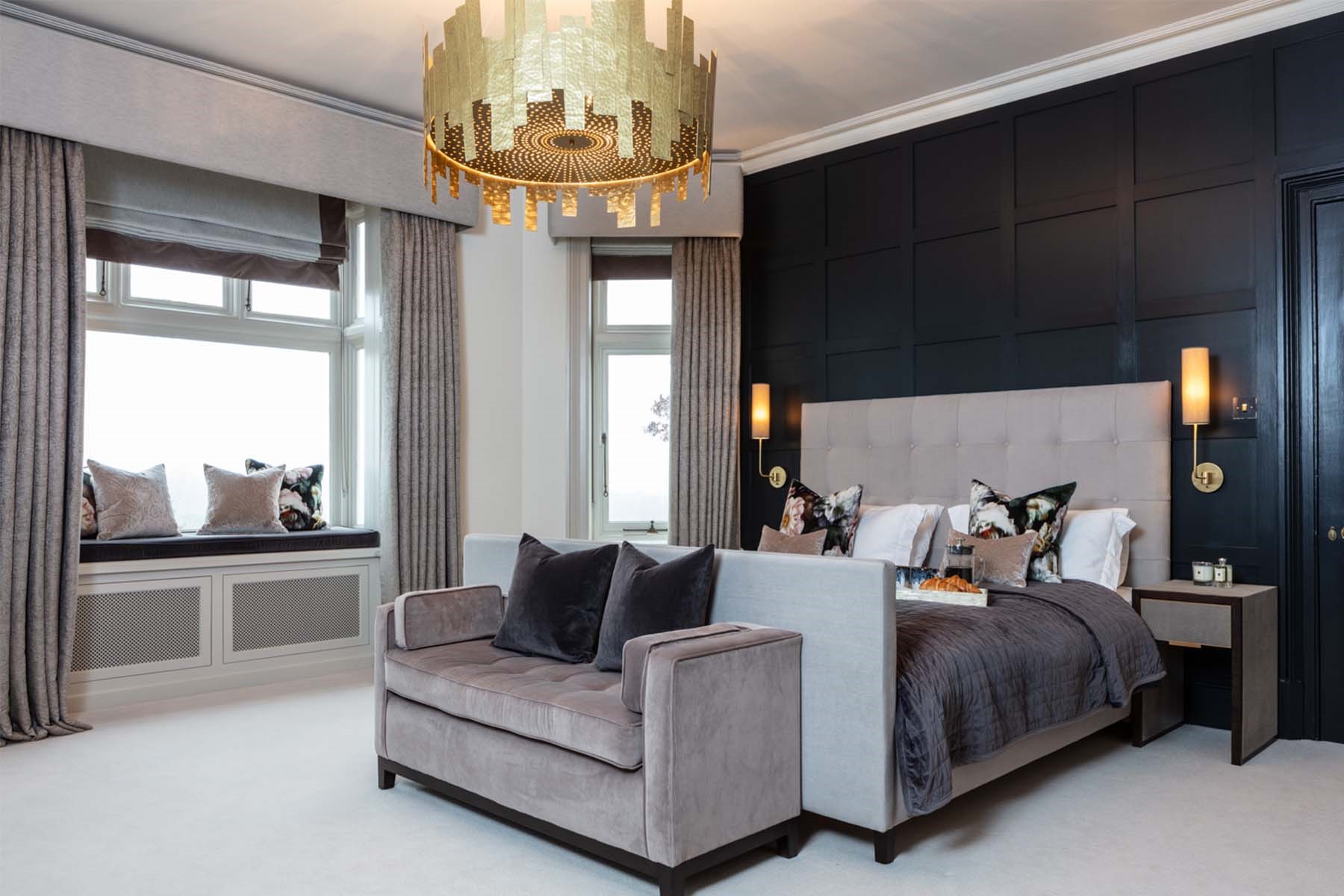
The kitchen may be the heart of the home during the day but the bedroom takes the crown at night. As a sanctuary for sleep, this should be the most luxurious and personal space in your home conducive to comfort and relaxation.
There are a surprising number of factors relating to your bedroom interior that could be inadvertently sabotaging a good night’s sleep. In this article, we’ll take a look at what the problems could be and what you can do to design your bedroom for better sleep.
Invest in a great mattress
Let’s start with the most obvious bedroom furniture – the bed, or more accurately, the mattress. It shouldn’t come as any great surprise to find out that your sleep quality is in direct correlation to how good your mattress is. Many of us sleep on mattresses that are way past their recommended life cycle which, according to The Sleep Council, is seven years.
But age of mattress is not the only factor. Everyone has different needs and what one person might find comfortable might spell agony for someone else. There are many different types of mattress on the market – foam, waterbed, pocket sprung, latex and futon to mention a few – and each type offers unique support and comfort that may or may not suit you. There’s only one way to find out.
Shopping for a new mattress should not be a quick or hasty process. This is an investment buy into your home and personal health, so take your time over choosing the perfect mattress for your needs. Once you’ve done your homework, make sure you test the mattress – not just in the showroom but at home. Many of the most reputable suppliers offer a 30, 60 or even 100 day guarantee or your money back, so take full advantage.
Source: Quanvast
Darkness is your friend
It is a scientific fact that the amount of light in the bedroom will affect your sleep. Put differently, one of the most important conditions for a good night’s sleep is a dark bedroom. Start with your window treatments to see how effective they are at letting in light. Are the curtains thick enough? Fitting blackout blinds or curtains may make a big difference.
Modern technology may also be to blame. Devices such as digital clocks, TVs and smartphones, laptops and tablets can interrupt your sleep cycles through the blue light they emit into the room, even when they are on standby. The answer lies in going back to traditional open faced alarm clocks, and concealed storage for items that have to remain in the bedroom – TV cabinets for instance.
Finally, make it a general house rule to banish digital devices from the room altogether to give yourself the best chance of an uninterrupted restful night’s sleep.
Source: Mibelle Group
Soothing colour schemes
If you are looking to create a bedroom interiors scheme that promotes sleep and relaxation, stay away from vibrant colours and bright, busy patterns that are more suited to daytime activities. To help you lower the energy in the room, use soft neutral or pastel shades, or muted blues or greens that are scientifically proven to lower the heart rate. These are calming, peaceful colours that are perfect for the boudoir.
Of course, you can still introduce bold pops of colours, but use them sparingly as accent colours, perhaps in artwork, soft furnishings or accessories, to add visual interest.
Source: Pfeiffer Design
Not too hot and not too cold
Your sleep can be greatly affected by the temperature in the room. Everyone is different but as a general rule, you should keep the bedroom thermostat to between 15-19 degrees centigrade. Your body temperature falls slightly to initiate sleep and this temperature range facilitates this. In other words, it will be much easier to fall asleep in a cool room. Conversely, a room that is too hot could lead to restlessness during the night and also affect your REM sleep.
Temporary measures to help you regulate the bedroom temperature other than via the thermostat include ceiling fans or portable fans, electric heaters, or wearing socks in bed.
Source: Casper
Banish the clutter
Finally, according to the principles of Feng Shui, physical clutter causes mental clutter, which activates the brain and can cause anxiety and unease – which is not exactly conducive to good quality sleep. If your bedroom is messy, you might want to declutter. Here’s some useful advice from tidying up guru Marie Kondo.
Invest in some clever concealed storage options for the bedroom, rethink your wardrobe space or create an American style walk-in closet and turn your personal sanctuary into a clutter free zone. It’s the first step towards a peaceful boudoir environment in which to relax completely, recharging your batteries ready for the next day.








 POSTED BY
POSTED BY 

